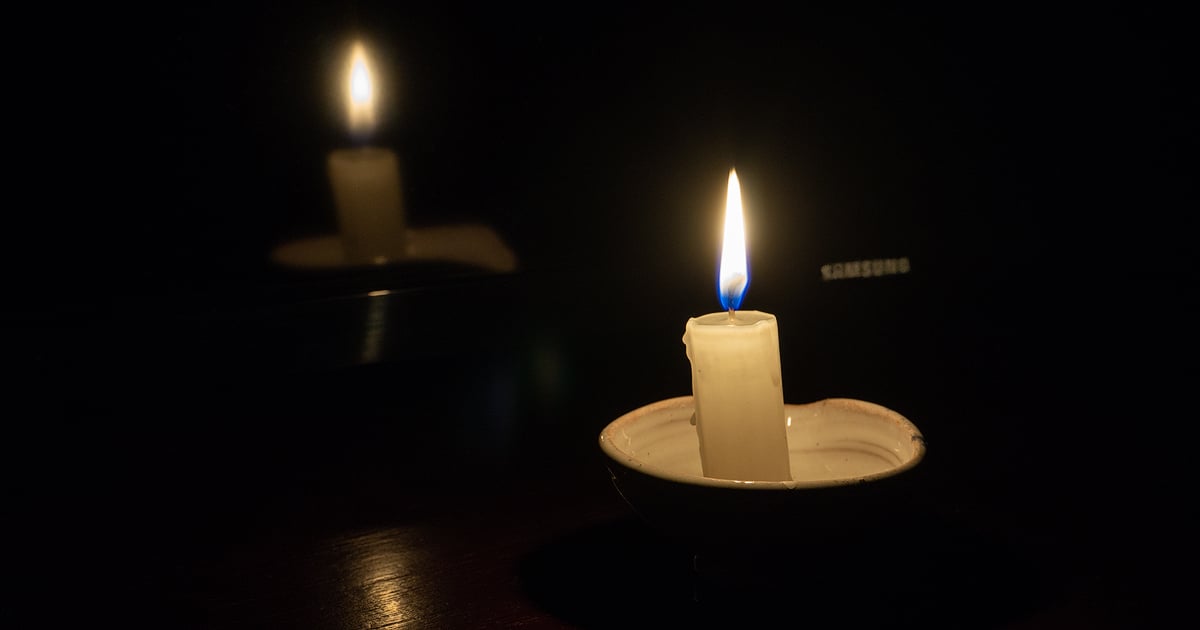
The Cuban regime has established a "special electrical contingency regime" that includes planned blackouts lasting more than 72 hours if the National Electric System (SEN) is unable to meet the country's electricity demand.
With the publication this Tuesday in the Official Gazette of Decree 110, the government of Miguel Díaz-Canel formalizes a kind of "state of exception" that, similar to the usual "states of emergency, exception, and siege" found in the constitutions of many countries around the world, grants exceptional powers to authorities to deal with extraordinary and serious situations.
The new regulatory framework approved by the Cuban government reinforces measures to control energy usage amid the ongoing energy crisis affecting the Island, where total collapses of the National Electric System lasting over 72 hours have occurred, such as the one that happened on October 18 with the unexpected shutdown of the Guiteras power plant.
Declaration of the electrical contingency
The new decree grants the Minister of Energy and Mines (MINEM) the authority to propose this special regime to the Council of Ministers, which must approve or reject it within 48 hours.
Once approved, the notification will be sent within 24 hours to the Central State Administration bodies, provincial governments, and economic actors in the country.
The Electric Union (UNE) will be responsible for informing the public about planned outages through mass media.
On their part, the energy councils of each territory will be responsible for defining the activities and services that should be reduced or suspended during peak demand hours.
Mandatory measures to reduce electricity consumption.
The decree specifies a set of strict measures to reduce electricity consumption during the contingency plan. Among them are:
- Shutdown of high-consumption equipmentElectric ovens, air conditioning systems, and refrigeration equipment must be turned off during peak hours, unless it negatively impacts stored products.
- Restriction on the use of public lightingOnly the necessary lighting to ensure road and pedestrian safety will be allowed.
- Reorganization of water pumpingIn areas where possible, water pumping to the population will be adjusted to avoid operating during peak night hours.
- Adjustment of temperature in air conditioning systemsThe systems must be maintained at 25 degrees Celsius or higher, unless technical conditions require lower temperatures.
- Reduction of lightingThe lighting in entities will be reduced to 50% of the installed capacity.
- Turning off electronic devicesThe equipment must be disconnected at the end of the workday.
Fines for non-compliance
The decree also establishes a penalty regime. Non-state economic actors who fail to comply with the regulations will be fined 20,000 CUP, while those responsible for state entities will face penalties of 5,000 CUP.
The authorities empowered to oversee compliance include provincial and municipal inspectors, as well as those appointed by the UNE.
Impact and challenges
These measures come at a time when the electrical system of the Island is facing serious generation limitations, compounded by breakdowns, plant maintenance, and fuel shortages. The decree aims to regulate electricity consumption, but it also highlights the severity of the energy crisis in Cuba.
The possibility of planned blackouts lasting more than 72 hours is causing concern among Cubans, who are already facing daily power outages. Moreover, the restrictive measures could affect key sectors such as industrial production and water supply, escalating economic and social tensions.
Reactions and perspectives
Although the authorities justify these measures as necessary to address the crisis, the decree also raises questions about the government's ability to ensure a stable electricity supply in the medium term. The implementation of an electrical contingency regime of this magnitude highlights the vulnerability of the National Electric System and could intensify public discontent.
In a country where electricity is essential for daily activities, schedule adjustments and service interruptions pose significant challenges for citizens and businesses. At the same time, economic sanctions could deal an additional blow to non-state actors who are already facing a difficult economic environment.
Decree 110 reflects a stricter energy control policy but also highlights the urgent need for sustainable solutions to the electricity crisis affecting Cuba. In the meantime, power outages will continue to be a daily reality that shapes life on the Island.
Frequently Asked Questions about the new Emergency Electric Law in Cuba
What does the new special electrical contingency regime in Cuba entail?
The special electrical contingency regime in Cuba includes planned blackouts of over 72 hours if the National Electric System does not meet demand. This regime grants exceptional powers to the authorities to address the energy crisis.
What are the mandatory measures to reduce electricity consumption?
The decree establishes measures such as the shutdown of high-consumption equipment during peak hours, restrictions on street lighting, reorganization of water pumping, and adjustment of temperature in air conditioning systems, among others.
What sanctions will be imposed for violating the decree?
Non-state economic actors who do not comply with regulations will face fines of 20,000 CUP, while those responsible for state entities will be penalized with 5,000 CUP. Provincial and municipal inspectors will oversee compliance.
What is the expected impact of the decree on the Cuban population?
The decree could amplify public discontent due to prolonged blackouts and restrictive measures, which are impacting key sectors such as industrial production and water supply, thereby escalating economic and social tensions.
Filed under: